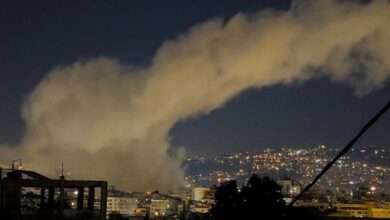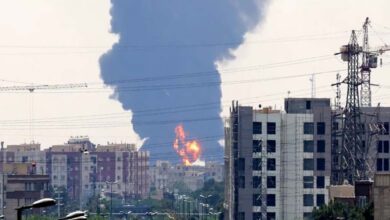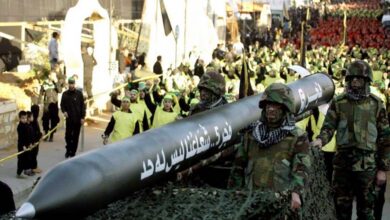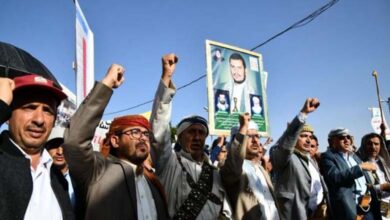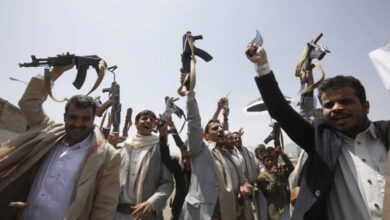Al-Halbousi clings to the Alliance candidate for Parliament presidency amidst Sunni division
The Supreme Federal Court dismisses a lawsuit to cancel a parliament session earmarked for electing a new council president, sparking much controversy
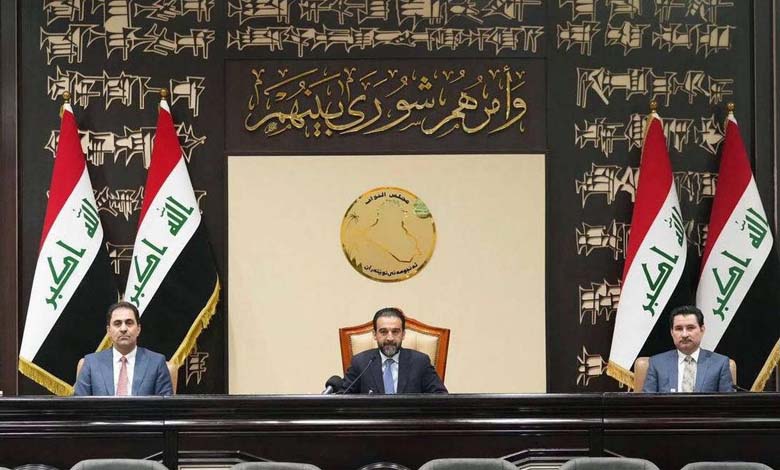
On Monday, the Alliance bloc renewed its support for Shalan Al-Karim’s candidacy for the position of Speaker of the Iraqi Parliament, indicating that this decision will be made after Eid al-Fitr, amidst heated disputes among Sunni factions regarding the candidate.
MP Burhan Nasser from the bloc told local agency Shafaq News that “discussions are ongoing between the blocs and the coordination framework regarding the election of the parliament speaker, and these discussions are based on the electoral entitlements that led to the formation of Prime Minister Mohammed Shiaa Al-Sudani‘s government.”
Nasser added that “the Alliance bloc has the entitlement and the right to choose the candidate for the position of Parliament Speaker, and after Eid, a new president will be chosen for the Council.” He pointed out that “Deputy Shalan Al-Karim remains the Alliance’s candidate for the position of Parliament Speaker, and any personality agreed upon by the coordination framework is eligible to assume the position.”
The Iraqi parliament has failed on several occasions to elect a successor to Mohammed Al-Halbousi, who was excluded from the position by a decision of the Federal Court that ended his membership. Meanwhile, sources in the Iraqi parliament revealed that many independent MPs belonging to various currents and parties are making intensive efforts to expedite the process of electing a new parliament president, as hastening the election of the parliament speaker contributes to political stability.
The sources indicated that this initiative is part of the MPs’ efforts to ensure the continuity of the parliament’s work and activate its legislative and oversight role, with many MPs expressing frustration over the obstruction of parliamentary work due to the absence of the council president.
MPs expressed concern about the continued obstruction of the parliament’s work, which would weaken the legislative authority and undermine the democratic process in Iraq, which they consider a threat to national interest and the country’s stability.
Today, Monday, the Supreme Federal Court rejected a lawsuit to cancel a parliament session scheduled for electing a new council president, sparking much controversy.
A judicial source confirmed that “the Supreme Federal Court rejected lawsuit number 22 Federal 2024, filed by MPs Hayet Al-Halbousi and Ahmed Mazhar Al-Jubouri, to cancel session number 1 of the third legislative term, the first legislative session held on January 13, 2024, dedicated to electing a new council president, and canceled all decisions issued, as well as the results, due to lack of jurisdiction.”
The parliament held an extraordinary session on Saturday night, January 13, to elect a new parliament speaker, and the first round of voting ended with the victory of Shalan Al-Karim’s Fatah Party with 152 votes out of 314, followed by MP Salem Al-Essawi with 97 votes, MP Mahmoud Al-Mashhadani with 48 votes, MP Amer Abdul Jabbar with 6 votes, and MP Talal Al-Zubayri with one vote. However, verbal altercations occurred inside the council hall, prompting the council presidency to adjourn the session until further notice, and no other session was held until the drafting of this report.
Since ending Al-Halbousi‘s membership in the parliament, the council has held several sessions, but the issue was not raised in those sessions due to the disagreement among political bloc leaders over the alternative candidate.
Sheikh Abdul Razzaq Al-Ahmad Al-Dulaimi, a close associate of the Sovereignty Alliance Party in Anbar province, reported an escalation of disputes between Al-Halbousi and Sovereignty Alliance leader Khamees Al-Khanjar.
Al-Dulaimi said, “The relationship between Al-Halbousi and Al-Khanjar ended due to Al-Halbousi’s refusal to support Salem Al-Essawi’s nomination for the position of parliament speaker to replace him.” He added that “the differences between the two parties are deep and have exacerbated the divisions, anticipating the emergence of severe divisions that will end Al-Halbousi’s future and his role as a prominent Sunni leader in the political equation.”



